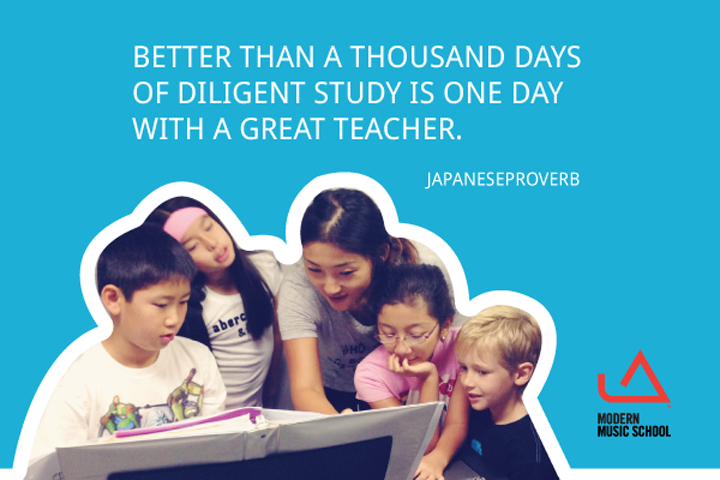Learning Mindsets (Part 3): Great teachers really matter
Latest Posts • February 17, 2015
“A teacher affects eternity; he can never tell where his influence stops.” – Henry Adams
This post is the third and last part of our mini-series about “Learning Mindsets”. We’ve already written about the “growth” and “fixed” mindsets here and about the capacity of our brains to always keep growing (and making us smarter) here. Our series shines a light on the idea that how students view themselves as learners – i.e.: how much they believe in themselves, no matter what – has a huge effect on their success and well-being for the rest of their lives.

We finished last week’s article by exploring how students also live up (or down) to the expectations that teachers set for them, and this is where we want to pick up with this week’s continuation of the series. There is one more all encompassing aspect that helps students stay motivated to learn, and it’s the relationship they have with their teachers.
Teachers have a tremendous impact on how students view themselves as learners. Just think about your own education. Was there a teacher in your life that really made a difference? Someone who never stopped believing in you to the point where they made you feel you could do anything you put your mind to?
We certainly do. (And we’ve written about how this positive influence actually led one of our students to collect an award at the Grammy’s 2014 on our Modern Music School Blog.)
In an article titled “Setting the Stage for Student Engagement,” Assistant Professor of Teacher Education Jan Richards states, “the most powerful influence you can have on your students is realized through your personality: your smile, your humor, your praise and caring.”
At Modern Music School, this is what we and our teachers want to be.
We want to inspire our students to engage wholeheartedly in the learning process. And we’re not only promoting this by setting our expectations just high enough, but also by being super supportive along the way. Students need teachers who really care and show genuine interest in their interests and lives. By expressing sincere interest in our students’ lives and well-being, we want our students to feel respected, understood and valued. We believe that as soon as students feel respected, seen, and listened to, they feel compelled to engage in class – and increased student engagement always results in increased learning.
Knowing that a teacher genuinely cares makes students want to try hard and succeed. If the teacher instills a sense of worthiness, students feel more motivated, and also a sense of responsibility and credibility. They endeavour more to live up to their teacher’s expectations, accepting the challenge to reach for their best and aim for the stars.
Last year, Gallup released a comprehensive report on the State of American Schools. The report combined decades of surveys of 5 million American teachers and principals with the results of the Gallup Student Poll. We won’t go into more detail for just now, but in one particular poll they asked student and teachers about their levels of emotional engagement, hope and well-being at work and school. What they found was that these ‘soft measures’ have powerful correlations over time to harder metrics, like a company’s profits or a school’s test scores. (You can read more here.)
One question they asked – and this is the question we want you to think about too – was “is engagement more important, or are grades more important?” If you ask a parent whether they’d rather have a kid who is getting mostly A grades and is only mildly interested in what they’re learning or mostly B grades and is super engaged, we can guess what most parents would pick.
We’ll leave it up to you to pick your answer but at Modern Music School we’re definitely all about keeping our students super engaged and excited to learn. We show our students that learning and doing one’s best (especially when confronted with tasks that seem difficult at first) are the goals, and grades and test scores are not.




Leave A Comment